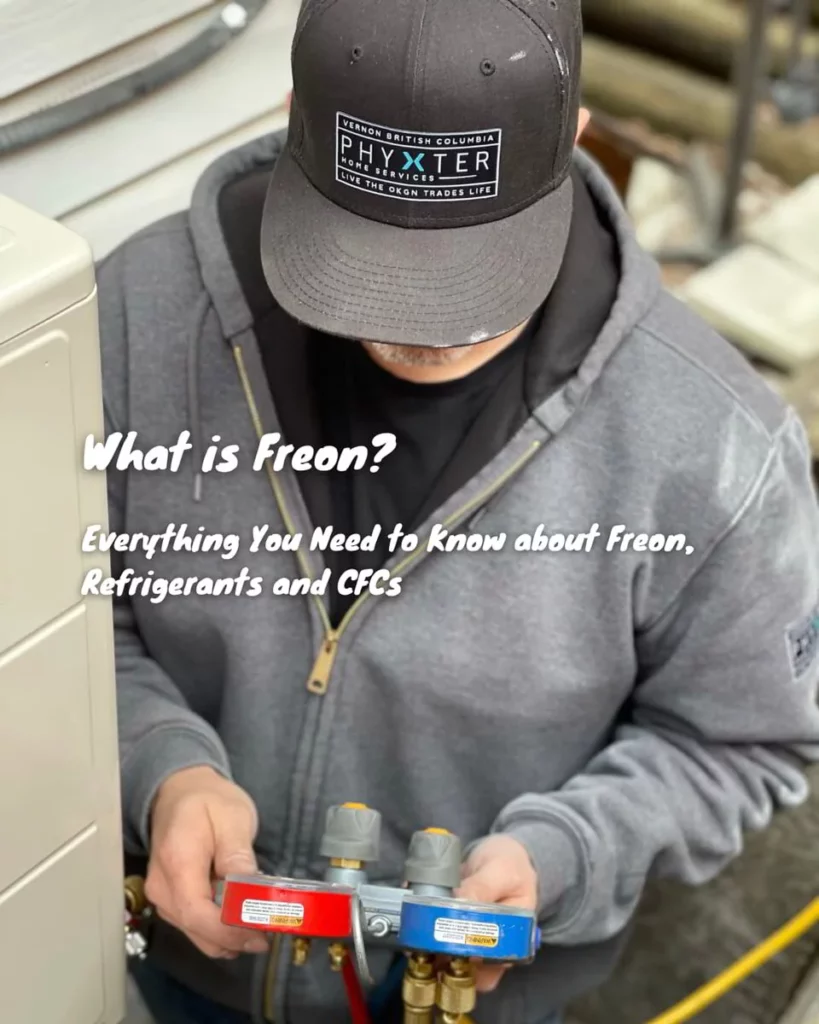The construction industry is filled with all sorts of language that can make the layman cringe at the thought of it.
For example, freon, CFCs, HCFCs and halocarbons – so when you ask a question like “what is Freon,” getting a direct answer is hard.
I am sad to say that the HVAC industry is probably one of the worst offenders in the construction industry. That being said, our clients often ask what some of these terms mean, like what is a condenser or what does HVAC stand for?
With ozone depletion a top priority and in today’s era of clean and green technologies, asking about freon gas is much more common than it used to be.
I remember what it was like when I started in the HVAC industry, and I felt like people were speaking a foreign language – a language I didn’t understand. As such, I figured that our blog was the perfect forum for answering some of these questions.
If you can believe it, this question is one of the most frequent questions we are asked on installations.
Table of Contents
⭐ What is Freon, and what is it made of?
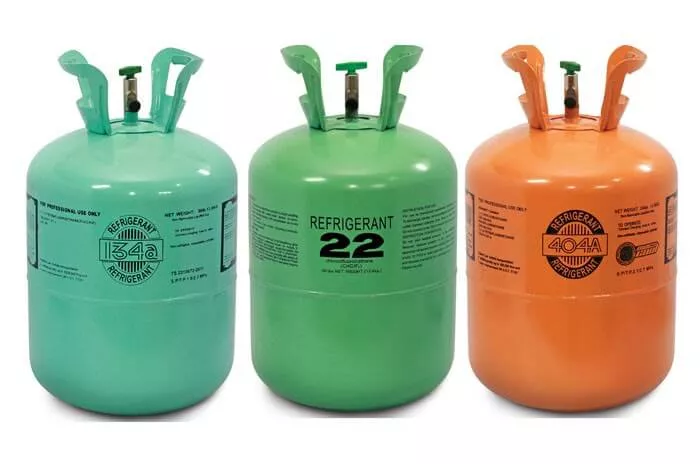
✔️ The Short Answer:
Freon is the commercial brand name of a refrigerant patented by DuPont.
✔️ The Long Answer:
Freon is the name of a registered patent for a commercial non-combustible gas refrigerant manufactured by DuPont.
Although Freon is a brand name, it has come to be referred to in the HVAC industry as a synonym for “refrigerant” or cooling agent.
Freon is a medium toxic but stable halocarbon – what this means, I have no idea, but that is why I write articles for the everyday person and leave the smart talk for my partner, Jake.
Joking aside, this means that it is slightly toxic, which I will address below, but it is chemically stable and will not react when mixed with other substances.
We use Freon because it has a rather useful property that is important to the air conditioning industry – it creates a cooling effect when it evaporates.
So, now we know that Freon is a common term used to refer to a commercial AC refrigerant used by air conditioners and heat pumps.
This also means that when people ask “what is this freon gas you speak of,” they should instead be asking, “what is refrigerant and what is it made of?“
⭐ What is Refrigerant, and What is it Made Of? What are CFCs?
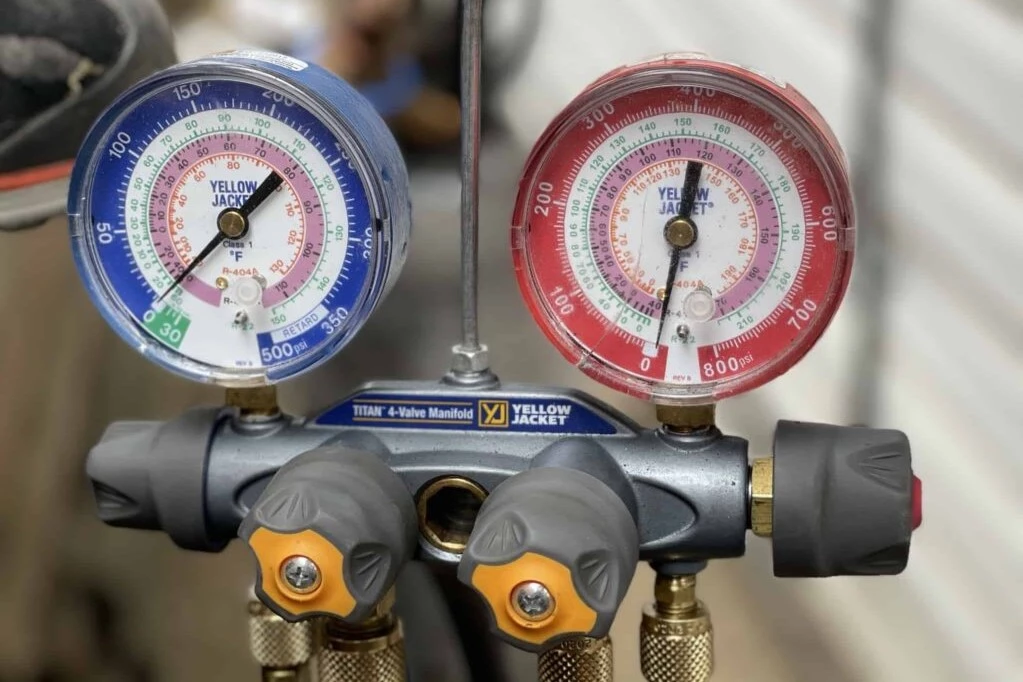
The refrigerants used in your air conditioner are called chlorofluorocarbons, also known as CFCs.
Some examples are R-22 and R-410A, both used heavily in the HVAC industry.
R-410A (other names are: Puron, Suva 410A, and Genetron AZ-20) replaced R-22 as the preferred refrigerant for commercial and residential air conditioning systems in most developed countries.
This was in accordance with the Montreal Protocol that mandated the production and import of R-22 and other similar products called HCFCs started the phase-out process from 1 Jan 2010.
An important note is that R410-A operates at a higher pressure, which is incompatible with existing systems that use R-22.
Therefore, there is a possibility to have your AC system retrofitted to use a newer refrigerant.
To confuse you even more, R-410A is now slated for retirement and elimination from all new air conditioning units in 2023.
So what does all this mean, and what is a chlorofluorocarbon?
Don’t worry, I think the same thing and do this for a living.
These CFCs may sound familiar to those in the know because they are better known for their controversial role in the ongoing debate about ozone depletion and global warming.
This is why all licensed HVAC contractors are required to recover it upon the recharging of an AC unit instead of letting it empty into the atmosphere.
This is one of the many reasons that it is so important to hire a licensed HVAC technician and ensure that this is done correctly.
⭐ How Freon Works in Your Air Conditioning System
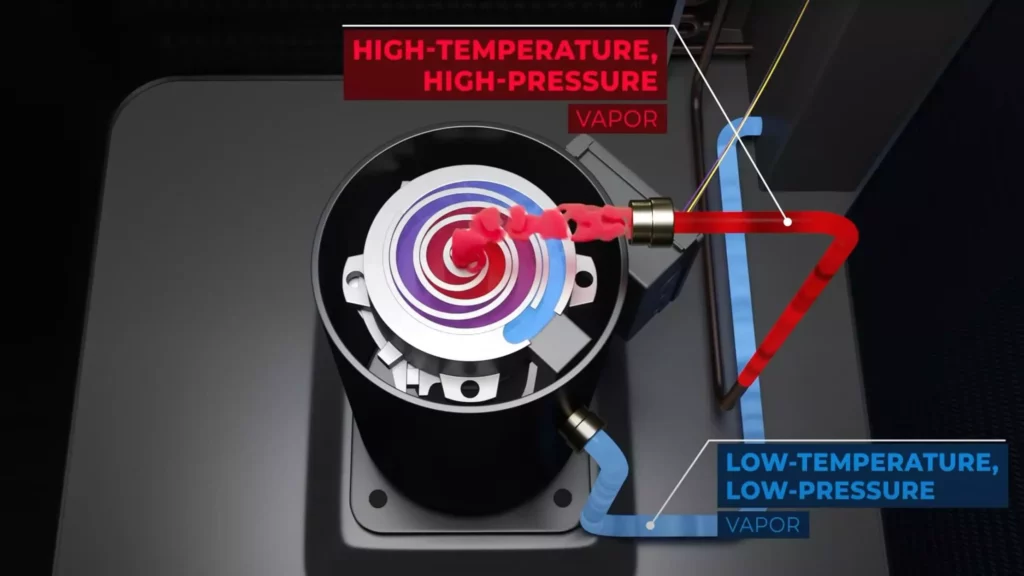
Freon circulates through your AC system via a series of refrigerant lines.
This substance travels through the system and undergoes a refrigeration process to cool your home.
Firstly, the gas is compressed (it gets hot at this point) via the AC compressor and pushed through the condenser coil, where it transfers that heat into the outside air.
As the Freon cools, it is converted back to a liquid state.
It then moves through a thermal expansion valve (TXV), is converted to a low-pressure gas, and is pushed through the evaporator coil.
The cold Freon is what soaks up the heat in your home to produce cool air.
The refrigerant is in a closed system and should not deplete on its own.
If your cooling system develops a leak, then your AC will need to be repaired by an HVAC professional and the system topped off with more refrigerant.
If you have an older system that uses R22, your AC system will not be compatible and will require upgrading to use a replacement refrigerant.
Related Reading: How Long Does An AC Compressor Last?
⭐ Recovering Freon Gas.
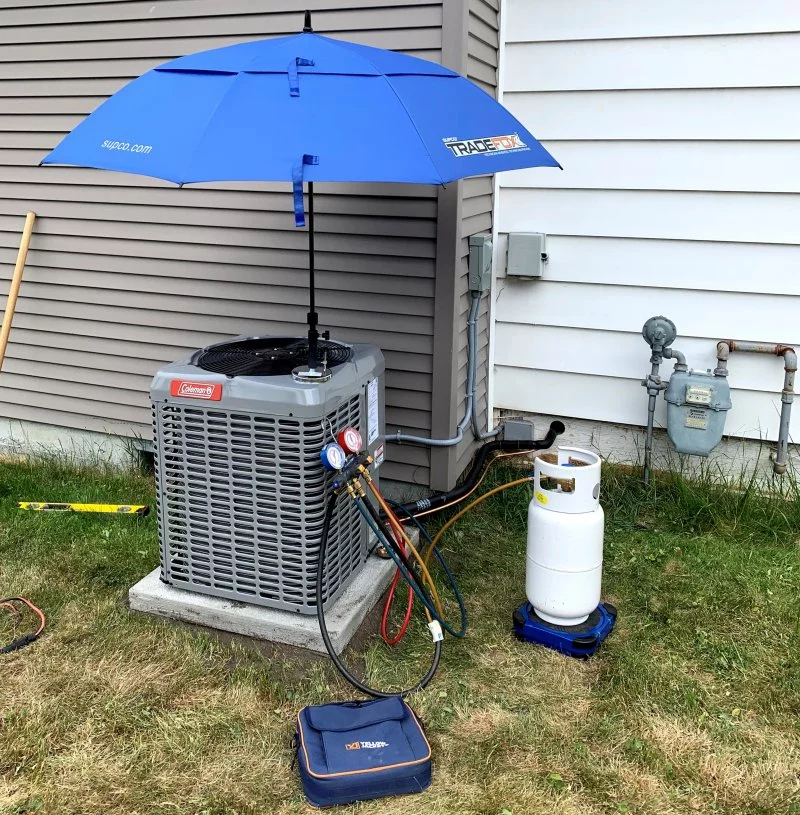
Freon recovery is not a challenging task, but many “old-school” contractors just let it vent into the atmosphere.
So regardless of which side you sit on regarding the ozone debate, if your contractor gets caught venting Freon without a good reason, both of you could be held liable.
I would wager that most licensed contractors do this properly, but just so you know, it wasn’t always done this way.
Before we knew what CFCs were and how they hurt the ozone layer, it was common practice to release the Freon directly into the air!
It’s kind of scary when you think about it, but how often do we look back at how things used to be done and cringe?
The life of Freon and other refrigerants could be short-lived as the industry is constantly innovating and looking for new and exciting technologies.
The focus is on ensuring cooling systems no longer burden the environment and their effect on global warming.
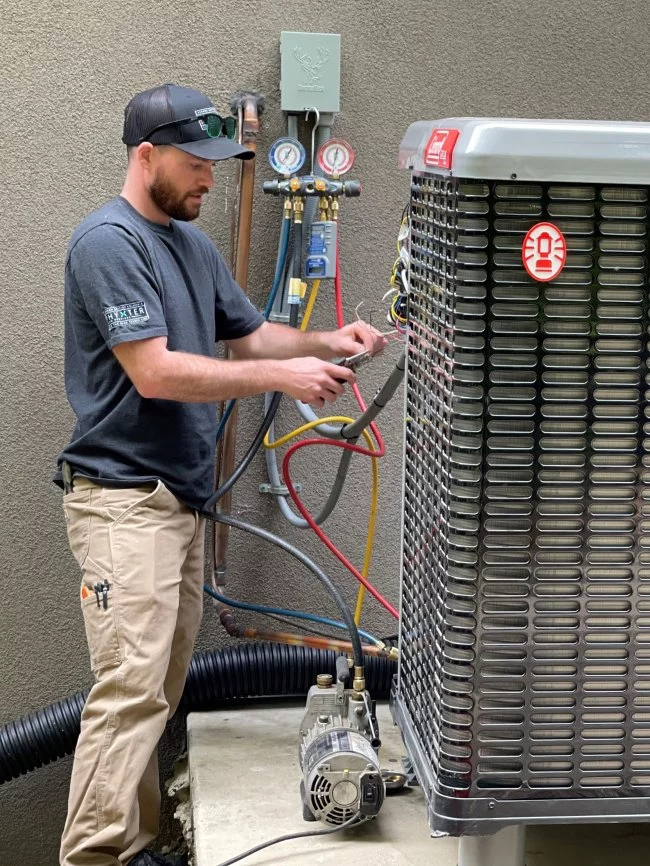
⭐ Conclusion on What is Freon
In the end, Freon is just the name of a commercial refrigerant manufactured by a company.
Even though it is like calling all chicken nuggets “Chicken McNuggets,”
It has become a part of the air conditioner vocabulary – at least now you know.
You also understand that your question should be rephrased as, “what are refrigerants made of?“
Don’t be afraid to contact Phyxter with any additional questions you might have – we are always happy to help with any of your air conditioning or heating needs.
If you have a question you’d like answered in our blog, don’t hesitate to contact Phyxter, and we’d be happy to write you an article.
If you live in the Okanagan Valley region, we provide quality air conditioning services and many other supporting services such as Plumbing and Electrical.

